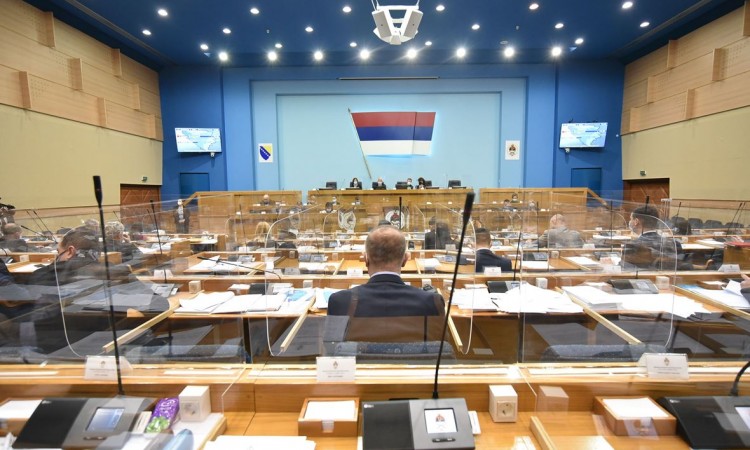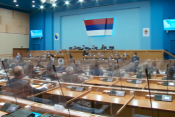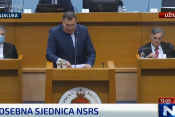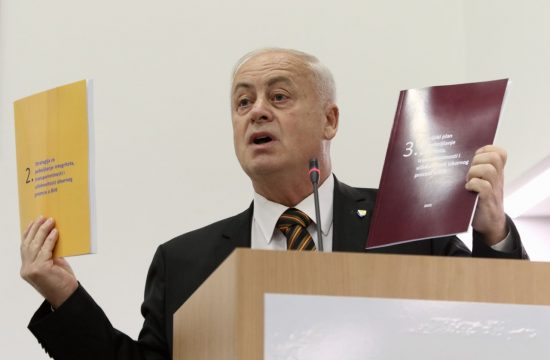
Entity parliament of Republika Srpska, Bosnia's Serb-majority region, passed a set of conclusions in a special session on Friday, making a step further towards the transfer of competencies from the state level to the entity level.
The MPs discussed whether to start the process of unilaterally taking back competencies that were transferred to the state level through post-war reforms in BiH.
Those reforms led to the establishment of numerous key state institutions, including the army, judicial institutions and indirect taxation authority.
The session comes as a response to now former international peace envoy, High Representative Valentin Inzko who imposed law changes banning the genocide denial and glorification of war criminals earlier this year, which Bosnian Serb leader Milorad Dodik and Republika Srpska leadership strongly opposed, announcing the withdrawal of the entity's consent for these institutions.
Although the opposition joined Dodik in boycotting the work of the state-level institutions over Inzko's law, they expressed concerns about the vote in the entity parliament, warning it would increase tensions in the country.
It led to a heated discussion during the Friday session after which most of the opposition MPs left. Following the discussion, 52 parliamentarians cast the vote and adopted the conclusion concerning the judicial institutions, the conclusion on transfer of competencies in the defence and security sectors, and the conclusion on transfer of competencies in the indirect taxation sector.
The parliament among other decisions withdrew the consent of Republika Srpska entity for the formation of central institutions in these sectors and tasked the Government of Republika Srpska to send to parliamentary procedure law proposals that would regulate these sectors at the entity level.
“The RS National Assembly (RSNA) tasks the RS Government to send to the RSNA for discussion and adoption a law on the high judicial and prosecutorial council of RS within a six-month period. The Law on the High Judicial and Prosecutorial Council of Bosnia and Herzegovina will not be applied on the RS territory as of the day when the law on the high judicial and prosecutorial council of RS comes into force,” said the first conclusion.
Similarly, the conclusions concerning the defence and security sectors, tasked the RS Government to send to parliamentary procedure within a six-month period a law treating these sectors at the entity level, while the Law on Defence of BiH, Law on Service in Armed Forces of BiH, Law on Intelligence-Security Service and Law on State Investigation and Protection Agency will not be applied in RS as of the day when the entity-level laws come into force.
Finally, the conclusion on indirect taxation tasked the RS Government to draft a law on added value and law on excises of RS and send it to parliamentary procedure within six months, while the state-level laws will not be applied in RS as of the day when the entity-level laws come into force.
The conclusions that were passed at the proposal of the RS President, the RS Government, the Serb member of Bosnia's tripartite Presidency and the ruling coalition in RS will come into effect a day after their adoption.







Kakvo je tvoje mišljenje o ovome?
Učestvuj u diskusiji ili pročitaj komentare